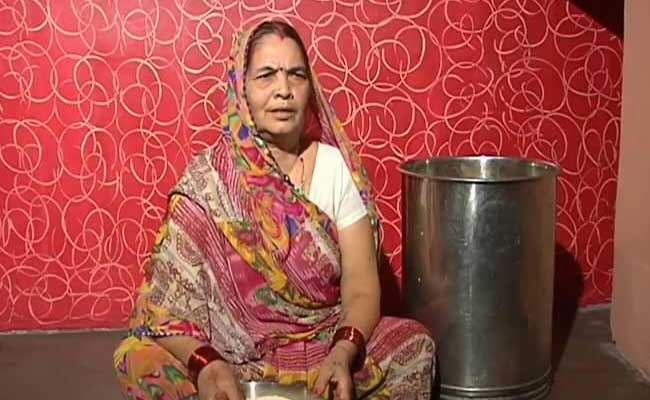Renu Kulkarni had managed to save Rs 30,000 in denominations of 500 and 1000.
Mumbai:
Renu Kulkarni, a 33-year-old homemaker from Mumbai, has managed to save Rs 30,000 in the last two years. Setting aside small amounts from her husband's monthly earnings, her hidden purse has helped the family tide over tough times in the recent past. But now, she is in a fix. The 30,000 rupees that she had saved are all in denominations of 500 and 1000 which have now been discontinued.
"I have about 25 to 30 thousand worth 500, 1000 rupee notes. I wanted to deposit that amount in the bank but my husband didn't know. Now, I have to deposit this amount and tell him that I took this money from him and saved it," said Ms Kulkarni.
Like her, 62-year-old Savitri Pandey too had to disclose her hidden savings of Rs 50,000 to her family. Accumulated over a span of 30 years, she keeps her savings tucked away in her village in Uttar Pradesh till date. She's now worried that she will have to spend another Rs 10,000 just to bring her cash back to Mumbai and deposit it into her son's account.
 "I used to save how much ever I could from the money my children used to give me for daily expenses in Mumbai. Since most of the money I have saved is in 500 and 1000 notes, now I will have to pay 10,000 to travel to my village and bring it here, what will I be left with in the end?" she asked.
"I used to save how much ever I could from the money my children used to give me for daily expenses in Mumbai. Since most of the money I have saved is in 500 and 1000 notes, now I will have to pay 10,000 to travel to my village and bring it here, what will I be left with in the end?" she asked.
Hidden inside kitchen jars, under the mattress or stashed away in trunks, many Indian housemakers have mastered the art of concealing small amounts of money received from their husbands each month. But with 500 and 1000 rupee notes now demonetized, many now find that their savings have suddenly lost its worth.
The number of homemakers faced with the prospects of having to disclose their savings to family members and worrying about exchanging their currency, could be staggering.
"If you are talking of India's population of 1.3 billion people and assuming there are four people per household, hence 300 million households in total. At least 50 per cent of these households will be falling into this bracket facing the conundrum of having to adapt to this demonetization," said Madan Sabnavis, Chief Economist at CARE Ratings.
Money saved for a rainy day has now left many homemakers now high and dry.
"I have about 25 to 30 thousand worth 500, 1000 rupee notes. I wanted to deposit that amount in the bank but my husband didn't know. Now, I have to deposit this amount and tell him that I took this money from him and saved it," said Ms Kulkarni.
Like her, 62-year-old Savitri Pandey too had to disclose her hidden savings of Rs 50,000 to her family. Accumulated over a span of 30 years, she keeps her savings tucked away in her village in Uttar Pradesh till date. She's now worried that she will have to spend another Rs 10,000 just to bring her cash back to Mumbai and deposit it into her son's account.

Savitri Pandey too had saved money in denominations of 500 and 1000 notes.
Hidden inside kitchen jars, under the mattress or stashed away in trunks, many Indian housemakers have mastered the art of concealing small amounts of money received from their husbands each month. But with 500 and 1000 rupee notes now demonetized, many now find that their savings have suddenly lost its worth.
The number of homemakers faced with the prospects of having to disclose their savings to family members and worrying about exchanging their currency, could be staggering.
"If you are talking of India's population of 1.3 billion people and assuming there are four people per household, hence 300 million households in total. At least 50 per cent of these households will be falling into this bracket facing the conundrum of having to adapt to this demonetization," said Madan Sabnavis, Chief Economist at CARE Ratings.
Money saved for a rainy day has now left many homemakers now high and dry.
Track Latest News Live on NDTV.com and get news updates from India and around the world

